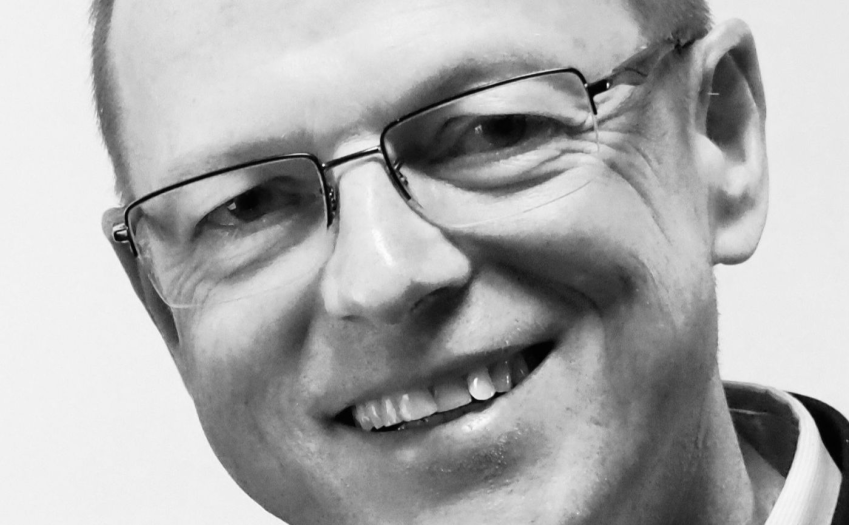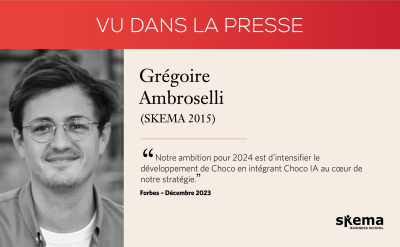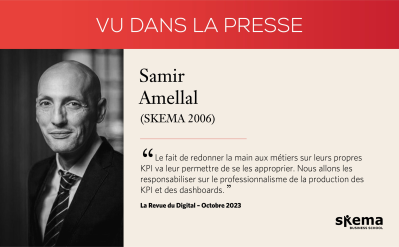News

Dominique Richer, SK 82: “giving and receiving, that’s reciprocity”
Dominique, the Managing Director of Campus Pro, talks to us about his background and his passion for helping people with employment, a common theme in his work
Have you always worked in employment support?
While I was studying at this wonderful school, I decided to become a salesman. To me, this seemed the best way to get ahead quickly in a company. I come from a humble background and was impressed by the job ads and salaries I was seeing in magazines like L’Express or Le Point. I had no idea what responsible positions existed in companies. I knew that it was possible to earn money by being a good salesman. I was fascinated by the idea that it was possible to convince people and make them change their mind. I worked as a sales rep for Xerox and constantly felt the thrill salespeople feel when they close deals, celebrate and earn record money.
Today I run a business. A business that specialises in helping people. This has become my chosen field; it appeals to my values. At the start of my career, I made the decision never to sell products or services like alcohol, tobacco or weapons; I didn’t want any part in spreading these kinds of products. Helping people to move forward and to find work they are having difficulty obtaining is exhilarating and gratifying. 7 years ago I helped an unemployed friend who had graduated from the EDHEC Business School to find work. He is still working there.
You are Managing Director of Campus Pro and you also founded EFFIJOB Outplacement 3 years ago. Can you tell us what is particular about your field of work? What are the challenges you face?
I founded the outplacement agency EFFIJOB because I thought I could juggle that and my duties as Managing Director of Campus Pro: what a fantasy! How wrong I was! Very quickly I found myself having to concentrate on running Campus Pro because it was such a complex task. Campus Pro bills its vocational training activities but we also search for companies and candidates that are a great fit for our apprenticeship contracts. And we don’t get funding for that! One third of my headcount is dedicated to this search, without which we’d have half the amount of contracts. The third parties we deal with are completely indifferent to the complexity of this business model. And yet we help thousands of people each year. Our impact on employment is major. Who doesn’t have children that have had a tough time finding work-based training? Well the situation is worse for children whose parents don’t have a network to draw on. That’s the challenge I face as managing director.
What is your greatest achievement? What drives you each day?
That’s a great question because I remember all my achievements and end up forgetting the failures. Let’s say that my greatest achievement was helping 500 young people from humble backgrounds as part of the Areli non-profit’s Emergence programme. Years later I’m surrounded by doctors, engineers, accountants, researchers, teachers... in short, young people who made it even though the odds weren’t in their favour at the start. I feel as though, thanks to the information at my disposal and the advice I gave, I was the catalyst for changes in life path. As an example, Hai Hong, a Chinese girl who arrived in France when she was still a minor. She got 20/20 in Maths at the Bac S (French higher school certificate, scientific stream) and was accepted into CPGE MPSI, a preparatory school in Faidherbe (Lille). At the end of the first year, crushed by the difficulty, by her level in French, and completely penniless, she was considering switching to a BTS (advanced vocational training certificate). I explained to her that that was not possible! I couldn’t let her give up on becoming an engineer, so I referred her to Lycée Baggio. She then joined the ECE engineering school in Paris and is now an engineer.
You’re very active in a number of non-profit organisations (SKEMA Alumni, Réseau Alliances...). Can you tell us more about your commitment to community-based groups and what this means to you?
You get to an age where you tell yourself that you’ve received a lot so can give a little. That’s reciprocity. You start by doing it with your own children, and then you realise that you can extend yourself beyond that. It becomes a way of life. You don’t expect anything in return and yet you continue to receive. It’s magic!
In your opinion, what does the future hold for apprenticeships in France?
All politicians say that we should develop them, we look to Germany and think “Ach, sie machen es prima!”, companies embark on RSE programmes, it’s great! And yet after 3 years at Campus Pro I’m still waiting for a call from a company head or an HR manager to say “Dominique, I want to train young people with you...”. It’s harsh, but that’s how it is: my clients take on apprentices to have employees that cost them less. Perhaps the intention of preparing the next generation does exist, but it’s not expressed. So if we want to boost apprenticeships, it has to be easy and cheap.
What advice would you give our alumni on how to be more effective on their career path?
OK, a few trite tips? work, think, observe, take in a lot of advice, grow your network, be curious about everything, and especially what doesn’t interest you (yet), capitalise on your experiences, and never stop learning.




